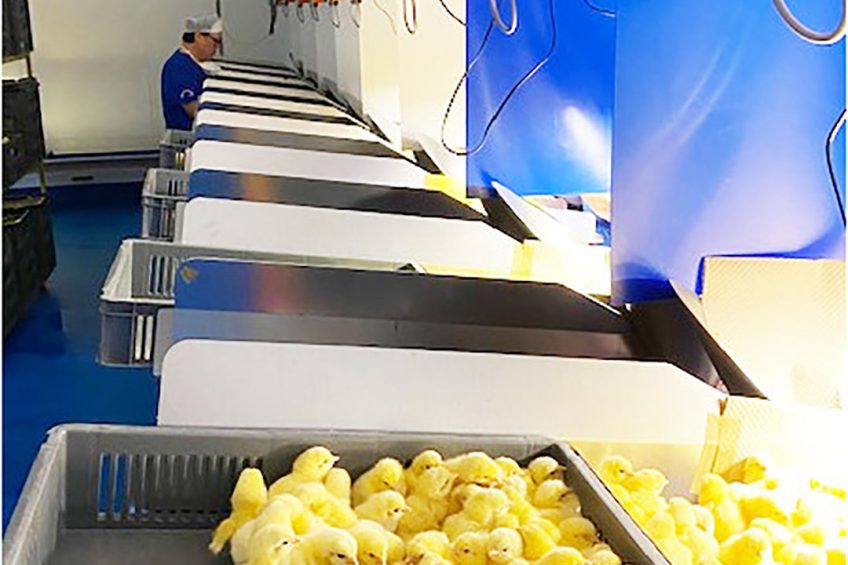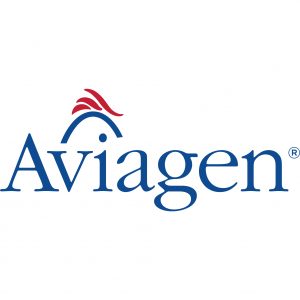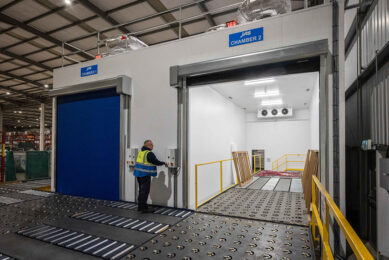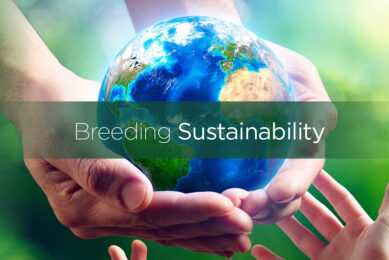Keeping hatcheries safe during the Covid-19 crisis

Hatcheries play a valuable role in the food supply chain and it is therefore vital to ensure the safety of hatchery workers and, in turn, business continuity during the coronavirus (Covid-19) pandemic and beyond. Here are some guidelines to help protect workers and the hatchery.
Whilst hatcheries already operate at the highest levels of biosecurity to protect the birds from harmful pathogens, extra preventive actions are required to safeguard workers in these unprecedented times. The following points form the basis of best-practice hygiene to protect hatchery workers. All measures should be applied in accordance with local government guidelines.
- The hatchery manager should be aware of and communicate the latest local restrictions and advice to team members. One effective communication tool is to have a presentation on display in a communal area, such as the break room.
- All visits by non-hatchery personnel should be prohibited.
- Anyone who is not feeling well and has symptoms similar to Covid-19 should immediately seek medical attention and inform the hatchery manager. See the World Health Organisation web site for a full list of symptoms.
- Normal hygiene practices should be heightened through frequent hand washing.
- It is essential to regularly sanitise all commonly touched surfaces.
- Signs should be placed around the hatchery and at every hand-wash station to remind everyone to follow recommended hygiene practices.
- Showers should be disinfected with antiviral and antibacterial disinfectants between uses.
- Signs advising users to wipe down the shower and door handles should be clearly visible.
- Employees should be provided with new face masks at the beginning of each shift (whenever required) and wear them at all times.
- Toilets, including door handles, should be cleaned at more frequent intervals using antiviral and antibacterial disinfectants. Special hand-sanitising door handles (and even self-disinfecting push door panels) are very useful.
- Supplies arriving at the hatchery should be treated with the greatest care, as they may have passed through many hands and have come from different locations. Disinfecting all goods by fumigation, UV light or disinfecting spray is essential.
- If chickens are being dispatched in plastic boxes to the farms, the boxes must be disinfected before they are brought back into the hatchery. Ideally, they should be washed and disinfected off-site. An alternative would be to deliver birds to customers in cardboard boxes for the duration of the pandemic.
Effective social distancing procedures
The World Health Organisation has identified social distancing as the best defence against Covid-19. Here are some helpful tips:
- Local governmental social distancing guidelines should be respected.
- It is good practice to alternate break times to prevent the break room from becoming overcrowded.
- If chairs are fixed to the ground, signs should indicate that chairs too close to each other cannot be used.
- Chairs and any handles in the break room should be cleaned and disinfected between each group on a regular basis.
- Sexers should keep their distance from each other at all times. This can be achieved by spreading the sexer stations further away from each other, or by installing barriers between the stations.
- Because hatchery delivery drivers are exposed to external unknown sources more frequently, it is essential they adhere to the social distancing policy and do not enter the hatchery. They should wear masks, gloves and disposable coveralls.

Securing continuity of operation
To ensure smooth continuous business operations, hatchery management should consider the following:
- It is important to have contingency arrangements in place in case of staff absences by training several people, or by implementing “cross training” for every task performed in the hatchery. It may be useful to hire additional temporary workers and train them for completing certain crucial tasks.
- Because getting spare parts for incubators and other hatchery machinery is becoming more difficult, it is useful to prepare an inventory of all spare parts in stock and order the most commonly needed parts as soon as possible.
- To ensure continuity of management, key managers should be rotated on a 2-week-on site and 2-week-work from home/standby basis where possible.
Communication is key
It is now more important than ever for hatchery management to maintain close communication with employees, reassuring them that all possible steps are being taken for their safety, and that their jobs are essential in feeding the world:
- Employees should be aware that extra precautions are needed to keep them safe from Covid-19 and they should be updated regularly on what these precautions are.
- Planning and orders should be reviewed during daily meetings, as they may shift due to logistical issues. Team effort is paramount and lines of communication should always be open.
Protecting people and the supply chain
It is important to know that chickens cannot be infected by Covid-19, and they also cannot transfer it to humans. This fact needs to be communicated to all hatchery staff to avoid misinformation and potential panic. Having additional, well-communicated precautions in place is necessary not only for health and security reasons, but also to reassure all employees that they are important, and that every step possible is being taken to keep them and their families safe. These added measures protect people – our most valuable resource. And, they also help maintain continuity of chick supply to poultry producers.






